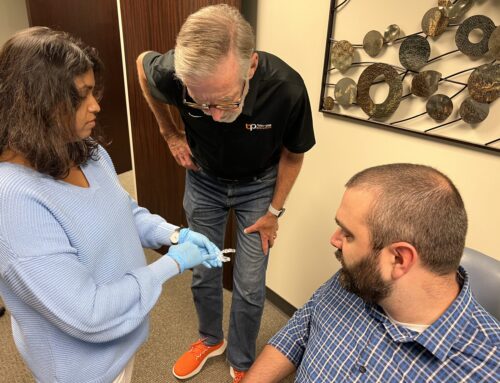We have all experienced what might seem like a stiff neck because we slept the wrong way or whipped our head around too fast. Or, let’s face it, we might have even done one small movement that normally wouldn’t cause pain, but did—we’ve all been there. Either way, when your patients experience neck pain it can disrupt their daily activities while limiting movements. That neck pain or stiffness they are experiencing can be related to their oral health.
Understanding Neck Pain
When it comes to neck pain, it is important to help your patients find a treatment option. Neck pain can come from many different places, with the most common cause being simple overexertion or muscle strain. Regardless of the source of the neck pain, it is clear that treating it can often be a challenge—especially in cases of chronic discomfort.
Many treatments simply address neck pain without correcting the actual issue that is causing neck pain in the first place. Today, more and more people are beginning to discover the benefits of visiting their dentist about their neck pain. So, when a patient suffers from neck pain, you want to be able to provide them relief within your dental practice—it saves them another trip to the doctor!
The Connection
It is important to understand the underlying connection between neck pain and oral origins. Most people consider neck pain to be limited solely to physical stress. However, the mouth and jaw hold significant clues as to why your patients are experiencing neck pain—it is often linked to the temporomandibular joint (TMJ), which is highly complex and has a wide range of motions.
The TMJ is responsible for coordinating every movement of the mouth, whether speaking or chewing. While it is responsible for an array of movements of the mouth, it can often be prone to improper function, which is TMD. This shifting can disturb the natural and correct pattern in which a patient’s teeth come together, which can cause inflammation of the surrounding tissues.
Due to this inflammation and pain, your patient might be experiencing neck pain. Through your knowledge of TMD and the problems that are associated with the TMJ, you can help your patients find relief from their neck pain. To learn more about TMD, neck pain, and craniofacial pain, I encourage you to attend an upcoming seminar or lecture series—it can make all the difference in helping you diagnose and treat your patients’ pain.






